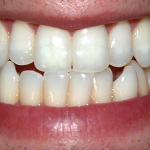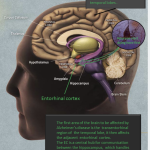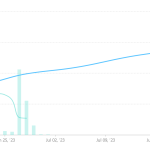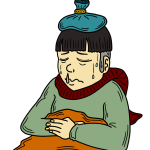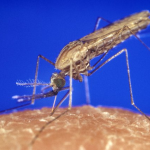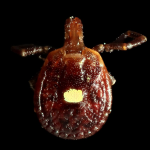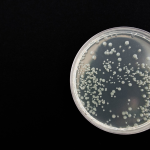Shinrin-yoku, also known as a "forest bath," originated in Japan and it's believed to enhance one’s well-being while helping “connect” with nature. It involves immersing oneself in a forest or natural environment and mindfully engaging with the surroundings through the senses. Western medicine offers “nature prescriptions” – the walk with or without the mindfulness. Does it improve our health?
Disease
Good dental hygiene is extremely important to overall health. Even simple and inexpensive interventions, such as brushing, flossing and chewing sugar-free gum, can be highly effective.
The creation of sperm in mammals, known as spermatogenesis, is critically impacted by temperature. A very small increase results in a significant reduction in the little swimmers. Peto’s paradox points out that larger animals with more cells – and, therefore, a greater risk of mutation – have less chance of cancer than smaller animals. A new hypothesis connects these two seemingly unrelated dots.
β‐Hydroxy‐β‐methylbutyrate, aka, HMB, is a very safe supplement used to build muscle. But a group has recently demonstrated that HMB may also have properties to mitigate the symptoms of Alzheimer's in mouse models of AD. Could this be a useful drug in protecting the brains from the ravages of this awful disease?
COVID-19 has drifted away from public view, and current outcome rates have been submerged into statistical noise. So it seems to be a good time to tote up where we have been, and the total impacts on public health.
There are upticks in early indicators of a COVID surge, including hospitalizations, test positivity, and SARS-CoV-2 concentrations in wastewater. And a new Omicron subvariant is rapidly gaining in prevalence. We need to prepare.
I’ve been visiting doctors lately, and my blood pressure has been recorded many times. Some days it is 140/80; other days, it is 200/110. Why could that be? And what does it tell us about healthcare and BIG DATA?
Some have decided it's over and heralded the end of the pandemic; others say they are not sure. The answer to this recurring question requires a few definitions and statistical regressions.
Florida, Texas Reporting Locally-Acquired Malaria Cases. (Spoiler Alert: It Isn't Bill Gates' Fault)
The eight cases of locally transmitted malaria recently reported in the U.S. – the first in 20 years – have elicited loony conspiracy theories about the cause. They're bunk.
COVID-19, a respiratory virus, often begins in viruses trapped in our nose and upper respiratory tracts. While universal precautions in healthcare settings require frequent handwashing, enforcing that requirement is lax, and compliance is often low. A new study reports on rhinotillexis, the act of “extracting nasal mucus with one’s finger,” and subsequent mucophagy, the ingestion of said mucus, among healthcare workers in the Netherlands.
An allergy to the sugar galactose-alpha-1,3-galactose “alpha-gal” – which causes an allergy to red meat and is spread by a tick – has “climbed 41%” over four years. To add to our fears, the media reported, “42% of health care providers didn’t know about the syndrome, and another 35% weren’t too confident about how to diagnose and treat it.” Is the meat apocalypse upon us? Have the cows found a way to make us eat less of them and more vegetables?
Roughly 99.5% of people born before 1980 are infected with herpes zoster, yet only 33% will develop its clinical manifestation: shingles. The Institute for Health Metrics and Evaluation estimates that 98% of people in the U.S. have been infected with COVID, but roughly 30% of our population has been symptomatic to the extent that they are registered as “cases.” It's time to discuss the infection enigma - “the puzzling observation that only a small minority of infected people die from infection or even develop clinical disease.”

